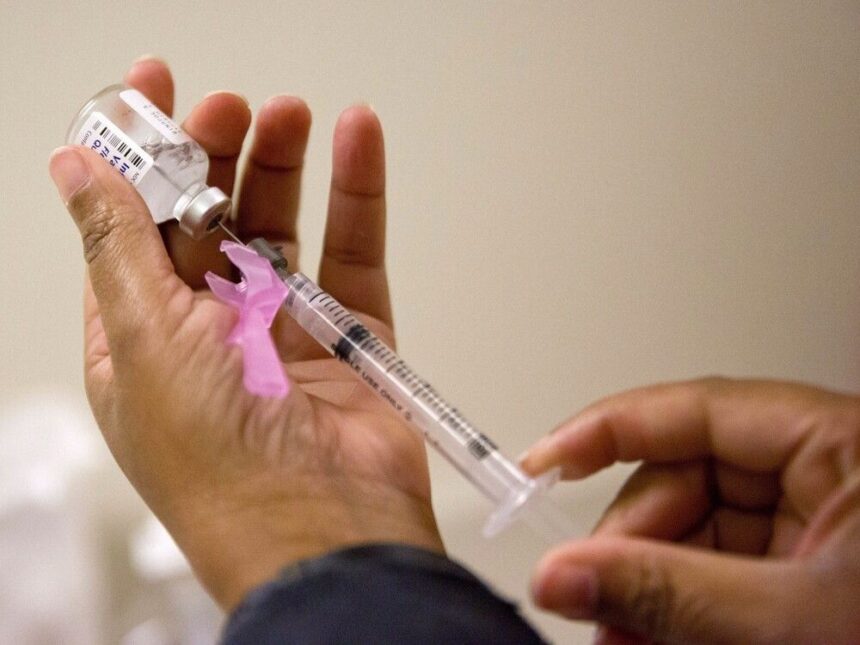The wind slammed the car door shut as I stepped into the parking lot of a community center just outside Vancouver. Inside, what was meant to be an informational session about seasonal vaccines had devolved into something altogether more fraught. A middle-aged woman clutched printouts of what appeared to be American news segments, gesturing emphatically as a public health nurse tried to maintain composure.
“But they’re saying it on Fox News,” the woman insisted. “They wouldn’t lie about something this important.”
This scene has become increasingly common across Canada over the past three years. American political rhetoric around vaccines doesn’t stop at the border—it flows north through social media feeds, YouTube algorithms, and family WhatsApp groups, creating ripple effects in Canadian healthcare.
Dr. Maya Levine, an immunologist at the University of British Columbia, has watched this phenomenon unfold with growing concern. “We’re seeing patients reference American political figures in their reasoning for refusing routine vaccinations,” she told me during an interview in her book-lined office. “Many Canadians consume more American media than Canadian, and that shapes their health decisions in ways we hadn’t anticipated.”
Recent data from the Public Health Agency of Canada shows childhood vaccination rates have dropped approximately 7% since 2019, with significant regional variation. In some communities with high exposure to cross-border media, rates have fallen more dramatically—up to 12%. These numbers might seem abstract until you consider that measles, once effectively eliminated in Canada, has reappeared in small clusters across three provinces.
The bleeding of American vaccine politics into Canadian healthcare decisions represents more than just a public health challenge—it’s a crisis of information sovereignty. Our unique healthcare system, while imperfect, operates on fundamentally different principles than the American model. Yet increasingly, Canadians view their health choices through an American political lens.
“When I started practicing twenty years ago, vaccine hesitancy existed but it rarely had partisan dimensions,” explained Dr. Aiden Singh, a family physician in Mississauga. “Now I have patients who bring up American senators or television personalities during routine appointments. The conversation has shifted from ‘Is this safe for my child?’ to ‘Which political tribe does this align me with?'”
I witnessed this firsthand when visiting a community health center in northern British Columbia last winter. A young mother bounced her infant on her knee while explaining to a nurse that she’d read online that “liberals are using vaccines to track people.” When gently asked where she’d encountered this information, she referenced an American podcast popular among right-wing listeners.
The Science Council of Canada reports that approximately 67% of Canadians regularly consume American news sources, compared to just 43% who regularly follow Canadian health information. This imbalance creates fertile ground for cross-border information transfer that doesn’t always translate well to our context.
“It’s not just vaccine politics,” notes Dr. Levine. “We’re seeing Canadian patients refuse treatments or request medications based on American political debates that have little relevance to our healthcare system or regulatory approach.”
Vaccines have always provoked questions and concerns—that’s natural and even healthy. What’s changed is the framing of these concerns within imported political narratives that don’t reflect Canadian realities. Measures like vaccine passports that were implemented differently in Canada than in many American states were nonetheless discussed in identical terms on both sides of the border.
Ellie Mohammed, a public health nurse who runs vaccine clinics in diverse Toronto neighborhoods, has developed strategies to bridge this gap. “I always start by acknowledging where people’s information is coming from without judgment,” she explained during a break between appointments. “Then I gently contextualize what that means—or doesn’t mean—in Canada.”
Mohammed keeps a tablet handy with bookmarked Canadian health resources. “I’ll say, ‘That’s interesting you heard that on American news. Let’s look at what our Canadian experts are saying about this issue.'” This approach has helped her navigate conversations with hesitant parents who arrive with concerns shaped by American media narratives.
The Health Media Literacy Coalition, a non-profit organization founded in 2021, has launched initiatives specifically addressing cross-border information flow. “We’re not trying to tell Canadians to stop watching American news,” explains coalition director Joanne Lemieux. “We’re encouraging people to consider the source and context of health information, and to prioritize sources relevant to our healthcare system.”
Their approach includes developing Canadian-specific social media content designed to compete with the high production values of American health misinformation. The strategy appears to be working in younger demographics, with their content reaching millions of views on platforms like TikTok and Instagram.
Indigenous communities face unique challenges in this landscape. “Many of our communities have historical reasons to question government health initiatives,” explains Marianne Kaquitts, a health navigator with the First Nations Health Authority in British Columbia. “When American political narratives about government overreach through vaccines merge with our own historical traumas, it creates complex barriers to trust.”
Kaquitts and her colleagues have responded by centering Indigenous knowledge systems alongside Western medicine in their health communications. “We talk about vaccines as protection for the collective community, which resonates with many Indigenous values around caring for one another,” she says. This approach has helped maintain higher vaccination rates in some communities despite the influx of American vaccine politics.
Trust in public health messaging correlates strongly with broader trust in institutions. Statistics Canada data shows public trust in government has declined approximately 14% since 2018, with steeper drops during the pandemic. This erosion creates vulnerability to alternative narratives, including those imported from American political discourse.
Dr. Singh believes Canadian healthcare providers need new approaches for this environment. “We need to acknowledge that people’s hesitancy often isn’t just about the vaccine itself—it’s about who they trust and which information sources shape their worldview,” he says. “Having honest conversations about trust is now part of providing good care.”
As I left the community center that evening, the public health nurse who had been fielding difficult questions looked exhausted but resolute. “Five years ago, I could focus on explaining how vaccines work,” she told me. “Now I’m also navigating American cable news talking points. It’s a whole different job.”
The boundary between our nations has always been permeable to culture, commerce, and ideas. But as American vaccine politics reshape Canadian health decisions, we face important questions about information sovereignty and the unique needs of our healthcare system. The answers will determine not just vaccination rates, but the future of trust in Canadian public health.






